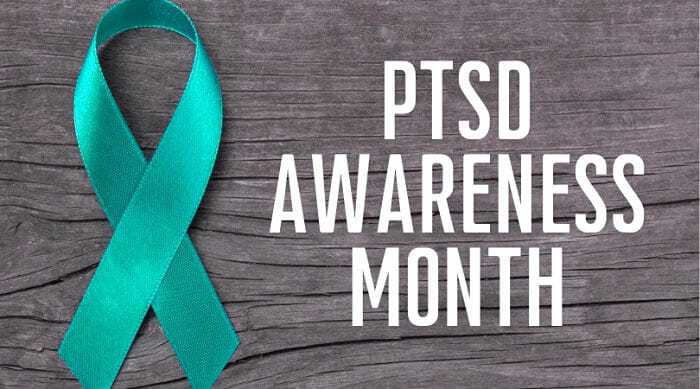June is PTSD Awareness month!
PTSD is defined as Post-Traumatic Stress Disorder. Based on the NIH website, 3.6% of Americans dealt with some form of Post- Traumatic Stress Disorder this past year. PTSD comes in many different shapes and sizes and occurs after someone witnesses or experiences a traumatic event. Some examples are natural disasters, war/combat, significant accidents like a car accident or drowning event, abuse: physical, mental, sexual, etc. and one that many probably do not know much about is Medical Trauma.
Medical Trauma is very real but still in early research stages. It can be experienced from the patient themselves or from their caregiver/loved one. According to the ITSS public fact sheet, regarding Medical Trauma, this can be caused by a life-threatening illness or injury, life changing complications from a surgery or medical procedure, or hospital delirium. Some symptoms of Medical Trauma can be Anxiety, Depression, Flashbacks, Intrusive thoughts, Sleep Disturbances and much more. But one of the most common symptoms is Hypervigilance meaning you may be constantly watching for things to happen or go wrong. Medical Trauma has its highest prevalence in Intensive Care Units.
Medical PTSD can make it difficult for patients or caregivers to trust medical personnel, visit hospitals or go to doctor’s appointments, and may be heightened when having an illness. For most caregivers of children with a medical condition, medical trauma can occur almost daily especially if doing daily care that may make your child fearful of pain or being uncomfortable. Alarms going off and ringing, curtains opening or shutting, hearing a ventilator can all be triggers in a hospital setting.
While medical trauma may be with you the duration of your illness or your loved one’s illness, or the trauma of an accident or injury, etc. the following are ways that you find may help you cope.
- Seeking Therapy to talk about the incident/triggers
- Using deep breathing exercises to help with anxiety
- Taking time to adjust
- Finding a book to read experiences or information
The hope is that Medical PTSD starts being talked about more, making doctors or therapists more familiar with the experiences of this and helping come up with helpful treatment plans for patients or their caregivers.

